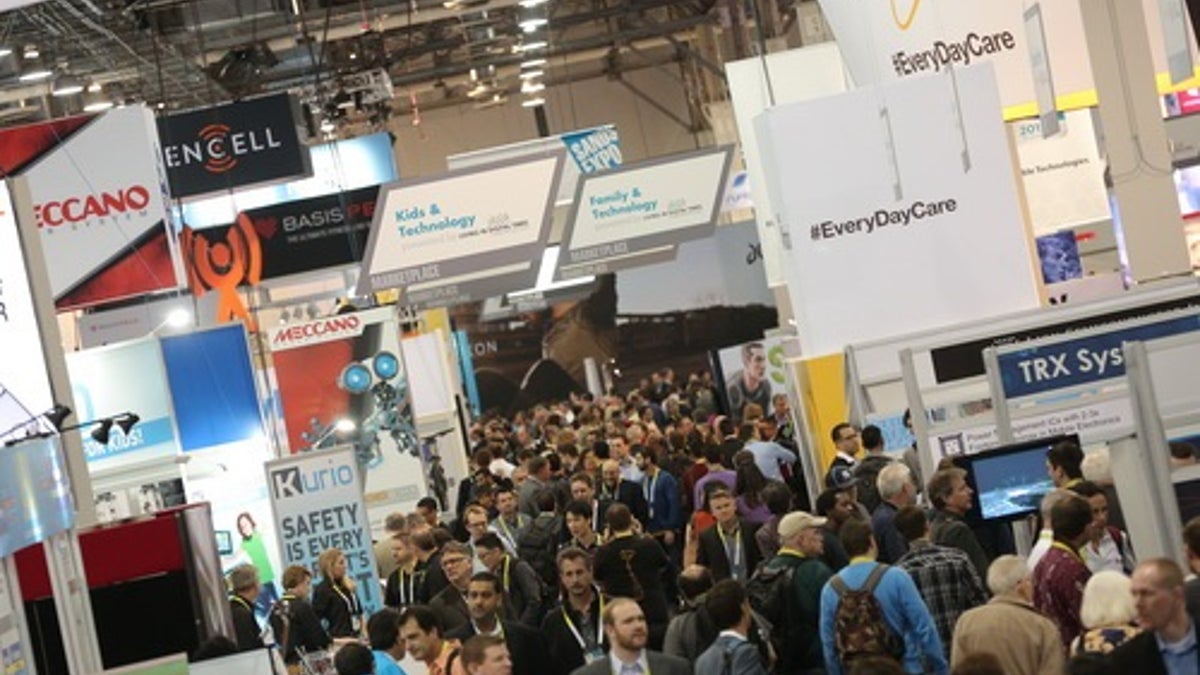
More than 150,000 tech professionals from around the world will be in Las Vegas in the first month in January for the annual Consumer Electronics Show (CES) to showcase, test and marvel at the latest technologies revolutionizing the way we work, live and communicate.
And while the Global Stage for Innovation is an awesome display of cutting-edge technology marking the very best of the private sector and free-market capitalism, the innovations and services showcased at CES are also the result of sound government policy with a light touch.
In many ways, CES facilitates technological innovation. Attendees participate, on average, in 33 onsite meetings and business discussions. Business gets done at CES. This is why it’s critical for us to welcome so many government officials, who not only attend CES, but take active roles in our events and programs.
Too often in today’s polarized political culture, we think in binaries: support business or support government. But this ignores the very real ways in which both sides can learn from the other. Heavy regulation can hinder a vibrant tech sector, serving only to stifle innovation.
But it’s up to the tech community to educate the government on what it needs to thrive, as well as to offer assistance in areas where the government is deficient. Nowhere else can officials get a comprehensive overview of the future of technology — everything from content distribution and connected health care to drones and autonomous vehicles. This is the power of CES.
A perfect example of what happens when the two sides don’t talk until it’s almost too late are the SOPA/PIPA debates of four years ago. In a misguided attempt to combat digital piracy — a very real and damaging problem — some legislators spoke almost exclusively to the traditional content community.
The resulting legislation was so one-sided it would have inhibited the ability of tech companies and startups to innovate and compete in a global economy. Only a last-ditch effort from the tech community, including the Consumer Technology Association, Wikipedia, Google and more than 7,000 other companies, forced Congress to change course.
Likewise, Washington should listen to the concerns of the tech community when it comes to patent reform. Patent assertion entities — better known as “patent trolls” — sue or threaten businesses based on hazy threats of patent infringement. These trolls cost the U.S. economy $1.5 billion a week — and trolls are now filing more frivolous lawsuits than ever. It’s an abominable practice that can be stopped only through federal legislation. That is precisely why representatives from the U.S. Patent and Trademark Office will address patent-troll extortion in a policy session at CES.
Attendees will also hear from every commissioner of the Federal Communications Commission and Federal Trade Commission on critical regulatory and policy issues, such as information-technology security and the Information Technology Agreement (ITA). Private and public organizations alike have been under assault by highly sophisticated hackers, against whom the federal government has sometimes seemed helpless.
In addition to this year’s hack of the Office of Management and Budget, which exposed information on 21.5 million people, the State Department, White House and U.S. Postal Service have all been hacked in the past two years. The only way we can turn the tide against the hackers is if public and private resources are brought to bear — and events such as CES make this critical dialogue and synergy possible.
Policymakers also come to CES to see technologies that will benefit from new trade agreements. In December, the tech sector earned a big win after four years of negotiations at the World Trade Organization, when the Information Technology Agreement was finalized. The deal will eliminate tariffs around the world on some of our most competitive technologies. It’s worth more than $1 trillion, and when it is implemented this summer, economists estimate it could create as many as 60,000 new jobs.
The Trans-Pacific Partnership (TPP), which was also recently completed, eliminates tariffs and covers important areas such as cross-border data flow and forced localization — a significant nod to the growing Internet and digital economies. And policymakers can learn from those services providers what more could be included in future trade deals to make agreements even more beneficial to the Internet segment of industry.
CES is an international stage for idea-sharing and decision-making, too. Federal regulators meet and hear from officials from around the world about the policies impacting their tech communities.
On some of these topics, government and the tech community will disagree. On others, they will work together. But regardless of where we stand on any given topic, it helps everyone when we’re openly and honestly communicating and collaborating.
Policymakers don’t come to CES is to find out what technologies it can stifle. Washington comes to CES to learn how it can help the tech sector thrive.








































